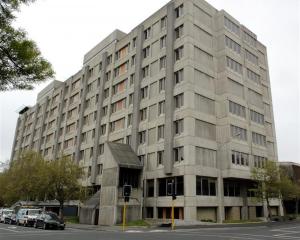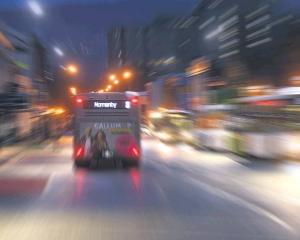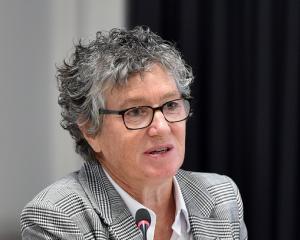What do you know about the 14 candidates contesting the 2019 Dunedin mayoral elections? City council reporter Tim Miller puts the questions to Jim O’Malley.

Jim O’Malley
Age: 55
Brought up: West Coast
Occupation: Scientist
Council experience: One term on council
Political orientation: Left of centre, disappointed Labour voter
Describe yourself in three words: Considerate, fair and compassionate.
First-term councillor and key figure behind the Own the Factory Ocho chocolate campaign Jim O'Malley wants Dunedin to get its fair share of government funding and for the city to be recognised as a main centre once again.
Cr O'Malley believes the city is heading towards major transport problems, and an increase in investment - including restoring commuter rail - needs to start now.
He says promoting and building the city's status as a liveable city will attract new people who will, in turn, create new business and industries for the city.
Why should you be mayor?
The experience I've had on council allows me to go to the role properly, while I'm not saying somebody without council experience couldn't be mayor. You do get a better sense of what you should be doing once you've gone through the three-year cycle. I bring a fair amount of world experience.
I also have a fair amount of personal experience where I've seen both victory and defeat in life. I think those are good things to bring into the decision-making areas.
A lot of people think the mayor is a dictator - which is simply not the case - you're one of only 15 votes. I've seen mayors lose votes and if you go in thinking you can tell everyone what to do, you're going to fail miserably.
What are your top priorities?
We're going to have big issues with transport in five to 10 years and should be starting on that now. Those ideas which I've been talking about during the past three years, like commuter rail, we really need to get going on. I want the Government to changes its rules so it is not illegal for a city to own its own public transport.
We are running out of housing stock fast. If we just keep increasing green-field development we will end up like those rather dull cities which are spread out and have no centre. While there is a place for that type of development, I would like to see significant apartment building in the centre of town.
You've talked about Dunedin becoming one of New Zealand's main centres again. Why is that important and how do you achieve that?
We are a metro yet still referred to as a provincial. What I have noticed in the last three years is we are considered too small for metro funding. Hamilton just got $90 million for rail and Wellington is going to spend $2 billion on its connectivity to the airport, yet we get none of that.
We're considered too wealthy for the provincial growth fund so we're caught in the middle. It takes talking directly to politicians, and you've got to get a mindset change. We've got to challenge that status. It means the mayor may need to go to Wellington for a fair amount of time - maybe Wellington more often than Shanghai.
What is the city doing well and what is it not doing so well?
It seems right now the city is filling with young people who are wanting to do exciting things and I think the city is doing that. I was never a supporter of the stadium when it was just for rugby, but as a civic investment in lifestyle it has really propelled Dunedin into that status as a liveable city.
If you look at places like Petridish, there is a really good environment for start-ups, new businesses and new industries which are already starting to thrive and I reckon in 10 years' time you are going to see a massive explosion of high-end companies in the city.
How do you make sure those type of people and businesses are attracted to the city?
I used to think it was you attract the business first but now I actually think you attract the people and the business follows. You don't attract a 200-employee company to the city.
What you do is attract someone who within the next decade will build a 200-employee company. And you do that by having great schools and parks and having a livable city. The George and Princes St upgrades are as big of an economic driver than anything you can do to attract companies. It is about livability.












